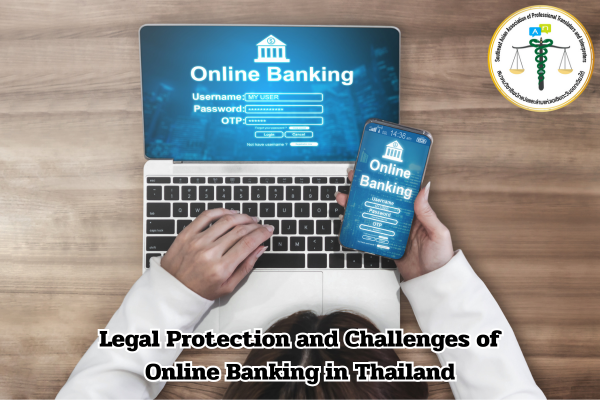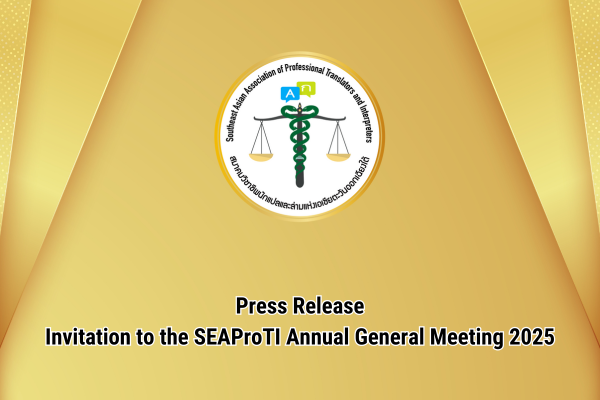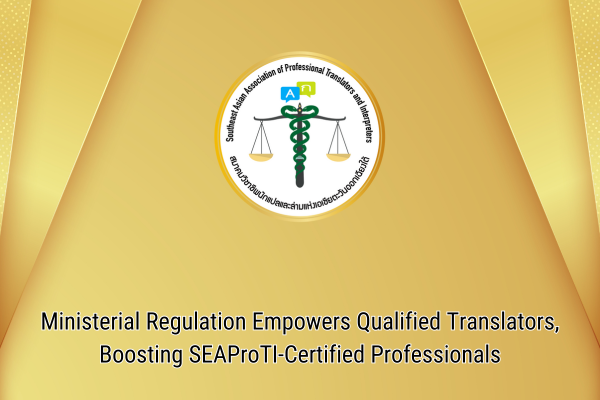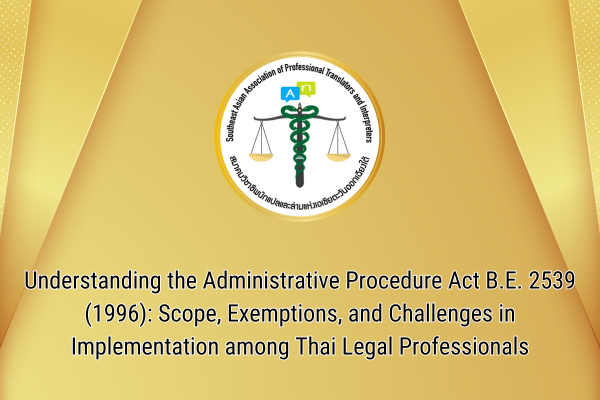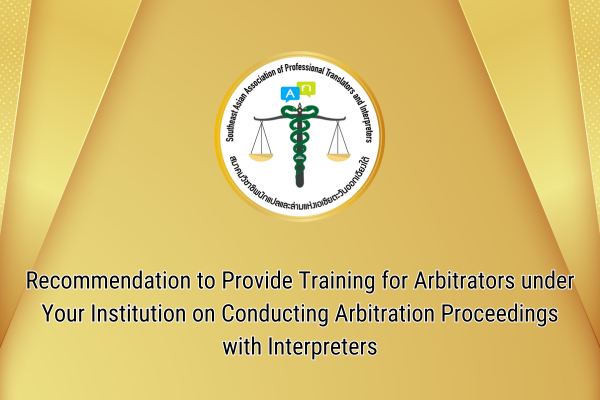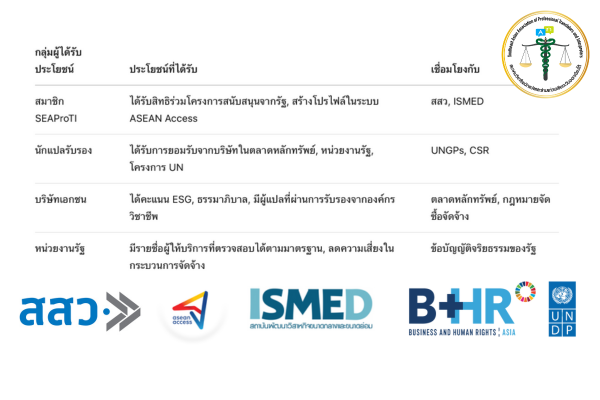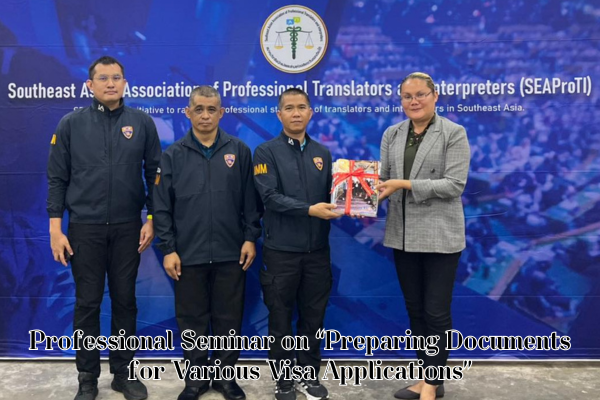Legal Protection of Online Banking in Thailand
19 February 2025, Bangkok – In the digital era, where information technology is advancing rapidly, online financial transactions have become increasingly popular. The ease and speed of digital operations have led many industries, including banking, to shift towards online services. Thailand is one such country that has adapted to this trend, although its electronic transaction laws are still in the early stages, which presents notable liability concerns.
Thailand Lagging Behind Other Asian Countries
According to Pew Internet and American Life, the United States is the most active user of the internet. However, internet use has been expanding across Asian countries, with Thailand trailing behind. The adoption of online banking in Thailand has not kept pace with other countries due to several major barriers, including system security concerns, a lack of trust in service providers, and questionable internet service. While Thai banks are working to address these issues, the absence of comprehensive laws hinders the widespread use of online banking. Other risks remain to be addressed as well.
Risks in Online Transactions
One major risk is phishing emails, which trick users into revealing sensitive information such as login credentials and transaction details. Another is malware or viruses that, when opened, can track keystrokes or even capture screenshots of transactions. There are also risks associated with using public internet cafes or failing to properly secure sensitive banking information. If data is not fully deleted after use, the next user may retrieve this information and conduct fraudulent transactions. Additionally, operational risks exist, such as the lack of robust security systems, poor software design, or hacking by cybercriminals.
As technological advancements continue to evolve globally, these risks intensify. Financial losses from online banking fraud affect not only the bank but also customers and other involved parties. Therefore, it is crucial to establish regulations that safeguard the practice.
Regulations in Thailand
The Bank of Thailand (BOT) oversees all Thai banks and their services, including online banking. The laws and regulations related to online banking are primarily derived from the Commercial Banking Act B.E. 2505, the Electronic Transaction Act, and the Electronic Payment Service regulations, which are influenced by EU e-money directives, along with regulations from the Bank for International Settlements (BIS) Commission of 2011.
The BOT mandates that Thai banks implement and maintain secure systems to protect online transactions. Banks must also prevent unauthorized access to their services. These requirements aim to bolster the credibility and safety of digital transactions while minimizing risks that could harm users and the public interest. Furthermore, these standards aim to elevate the level of Thai financial services to meet global standards.
Banking Contracts and Liabilities
In general, the use of online banking in Thailand is governed by a contract between the bank and the customer. The terms and conditions of these contracts vary by bank, but they typically outline the customer’s responsibility to safeguard their personal banking information, secure their user IDs and PINs, and promptly notify the bank of any errors. These contracts also contain clauses outlining the bank’s liability and limitations, which the customer must carefully review and understand in case of liability issues.
Banker’s Liability
Liability is a key issue in online banking. Liability refers to legal responsibility for actions or omissions that can result in a lawsuit or the payment of damages or performance of actions through court orders.
Liability in online banking is clearly defined in the Internet Service Agreements, which vary between banks. Liability can result from human error, fraud, or technical system malfunctions.
Human error can be committed by either the customer or a bank employee. Banks are responsible for implementing secure systems, including passwords and PINs, to protect transactions, and these systems are expected to be trustworthy. However, errors may occur if the customer inadvertently allows a third party to access their information or fails to notify the bank about lost cards or compromised data. In such cases, the bank may not be held liable.
Fraud can still occur despite tight security measures. Fraudsters typically operate through phishing emails, Trojan horse viruses, or other malicious software designed to steal data. Once they obtain sensitive information, fraudsters can transfer funds to third-party accounts and withdraw the money. Technical malfunctions or system failures, whether within the bank’s control or not, also pose a risk. If the bank fails to notify customers in a timely manner, it may not be held liable, especially if the means of notification were beyond the bank’s control.
The Role of Certified Translators, Translation Certifiers, and Certified Interpreters from SEAProTI
In online banking transactions, especially in cross-border cases, the role of certified translation and interpretation becomes vital. The correct translation of contracts, terms, and conditions is crucial for ensuring that all parties involved fully understand their rights and obligations. This is particularly important when dealing with international clients or transactions in multiple languages.
Certified translators, translation certifiers, and certified interpreters from the Southeast Asian Association of Professional Translators and Interpreters (SEAProTI) play an important role in ensuring that banking documents are accurately translated. Their expertise helps to guarantee that all parties involved understand the legal terms and conditions in a language they are comfortable with. By certifying these translations, they provide an additional layer of security, ensuring that the documents are legitimate and reliable, and that the risks of miscommunication or misunderstandings are minimized. This contributes to the overall safety and effectiveness of online banking in Thailand, both domestically and in international contexts.
SEAProTI’s certified translators, translation certification providers, and certified interpreters:
The Southeast Asian Association of Professional Translators and Interpreters (SEAProTI) has officially announced the criteria and qualifications for individuals to register as “Certified Translators,” “Translation Certification Providers,” and “Certified Interpreters” under the association’s regulations. These guidelines are detailed in Sections 9 and 10 of the Royal Thai Government Gazette, issued by the Secretariat of the Cabinet under the Office of the Prime Minister of the Kingdom of Thailand, dated July 25, 2024, Volume 141, Part 66 Ng, Page 100.
To read the full publication, visit the Royal Thai Government Gazette
การคุ้มครองทางกฎหมายของการธนาคารออนไลน์ในประเทศไทย
19 กุมภาพันธ์ 2568, กรุงเทพมหานคร – ในยุคดิจิทัลที่เทคโนโลยีสารสนเทศมีการพัฒนาอย่างรวดเร็ว การทำธุรกรรมทางการเงินผ่านทางอินเทอร์เน็ตก็กลายเป็นสิ่งที่หลายๆ คนเลือกใช้ การทำธุรกิจหรือการให้บริการธนาคารออนไลน์จึงเป็นเรื่องที่ถูกนำมาใช้กันอย่างแพร่หลาย ประเทศไทยก็เช่นกันที่เริ่มพัฒนาและเปิดให้บริการธนาคารออนไลน์ แม้ว่ากฎหมายเกี่ยวกับการทำธุรกรรมออนไลน์ในประเทศไทยยังคงอยู่ในขั้นตอนเริ่มต้น ซึ่งเป็นสาเหตุให้เกิดปัญหาหรือข้อกังวลเรื่องความรับผิดชอบในด้านกฎหมาย
ประเทศไทยตามหลังบางประเทศในเอเชีย
รายงานจาก Pew Internet and American Life ระบุว่า สหรัฐอเมริกาเป็นประเทศที่มีการใช้อินเทอร์เน็ตมากที่สุด ขณะที่ประเทศในเอเชียเอง การใช้งานอินเทอร์เน็ตมีการเติบโตอย่างต่อเนื่อง โดยประเทศไทยอาจยังตามหลังประเทศในเอเชียบางประเทศ เนื่องจากมีอุปสรรคต่าง ๆ เช่น ปัญหาความปลอดภัยของระบบ การขาดความเชื่อมั่นในผู้ให้บริการ และคุณภาพการให้บริการอินเทอร์เน็ต แม้ว่าในปัจจุบันธนาคารไทยจะพยายามปรับตัวและจัดการกับปัญหาเหล่านี้ แต่ก็ยังขาดกฎหมายที่ชัดเจนในการคุ้มครองผู้ใช้บริการ ทำให้เกิดความเสี่ยงในหลายด้าน
ความเสี่ยงในการทำธุรกรรมออนไลน์
หนึ่งในความเสี่ยงหลักคือการโจมตีจากฟิชชิงที่ส่งอีเมล์หลอกลวงผู้ใช้ให้เปิดเผยข้อมูลสำคัญ เช่น รหัสการเข้าสู่ระบบหรือหมายเลขธุรกรรม อีกวิธีที่พบบ่อยคือการส่งไวรัสหรือมัลแวร์ที่อาจติดตามการพิมพ์ข้อมูลหรือถ่ายภาพการทำธุรกรรมได้ การทำธุรกรรมในคาเฟ่อินเทอร์เน็ตที่ไม่ได้รับการรักษาความปลอดภัยก็เป็นอีกหนึ่งความเสี่ยงที่ควรระวัง เมื่อข้อมูลไม่ได้ถูกลบออกจากระบบอย่างถูกต้อง ผู้ใช้คนถัดไปอาจสามารถเข้าถึงข้อมูลและทำธุรกรรมที่ผิดกฎหมายได้ นอกจากนี้ การออกแบบระบบที่ไม่ปลอดภัยและการโจมตีจากแฮกเกอร์ก็ยังคงเป็นปัญหาที่ต้องเผชิญ
การพัฒนาเทคโนโลยีที่รวดเร็วทั่วโลกยิ่งเพิ่มความเสี่ยงในการทำธุรกรรมออนไลน์ ซึ่งอาจส่งผลให้เกิดความเสียหายทั้งต่อธนาคาร ลูกค้า หรือบุคคลอื่นที่เกี่ยวข้อง ดังนั้นจึงจำเป็นที่จะต้องมีการออกกฎหมายที่ชัดเจนและมีการบังคับใช้เพื่อคุ้มครองผู้ใช้บริการและลดความเสี่ยงเหล่านี้
ข้อบังคับทางกฎหมาย
ธนาคารแห่งประเทศไทย (ธปท.) เป็นหน่วยงานหลักที่ดูแลการทำธุรกรรมธนาคารในประเทศไทย รวมถึงการธนาคารออนไลน์ โดยมีกฎหมายและข้อบังคับที่เกี่ยวข้องกับการธนาคารออนไลน์ เช่น พระราชบัญญัติการธนาคารพาณิชย์ พ.ศ. 2505 ซึ่งกำหนดการออกใบอนุญาตและการดำเนินการของธนาคารพาณิชย์ และพระราชบัญญัติการทำธุรกรรมอิเล็กทรอนิกส์ ซึ่งมีข้อกำหนดที่มาจากกฎหมายของสหภาพยุโรป
ธปท. กำหนดให้ธนาคารในประเทศไทยต้องมีระบบที่มีความปลอดภัยในการทำธุรกรรมออนไลน์ และต้องป้องกันการเข้าถึงข้อมูลโดยไม่ได้รับอนุญาต ซึ่งข้อกำหนดเหล่านี้มีจุดประสงค์เพื่อเพิ่มความน่าเชื่อถือในการทำธุรกรรมออนไลน์ และช่วยลดความเสี่ยงในการถูกโจมตีจากภายนอก
ความรับผิดชอบของธนาคาร
การทำธุรกรรมทางการเงินผ่านธนาคารออนไลน์ในประเทศไทยเป็นการทำสัญญาระหว่างธนาคารและลูกค้า โดยธนาคารจะระบุเงื่อนไขในการใช้บริการต่าง ๆ รวมถึงการรักษาความลับของข้อมูลส่วนบุคคล รหัสผู้ใช้และรหัส PIN รวมถึงข้อกำหนดในการแจ้งปัญหาหรือข้อผิดพลาดให้กับธนาคารทันที
แต่สิ่งหนึ่งที่เป็นประเด็นสำคัญคือการที่ธนาคารจะต้องรับผิดชอบต่อความผิดพลาดต่าง ๆ ที่เกิดขึ้นในระบบธุรกรรมออนไลน์ ซึ่งอาจจะเกิดจากความผิดพลาดของมนุษย์ การฉ้อโกง หรือปัญหาทางเทคนิคในระบบ
ความรับผิดชอบในกรณีต่าง ๆ
ความผิดพลาดจากมนุษย์อาจเกิดจากการประมาทของลูกค้าหรือพนักงานธนาคารเอง หากลูกค้าไม่รักษาความลับของข้อมูลหรือไม่แจ้งธนาคารเมื่อเกิดข้อผิดพลาด ธนาคารอาจไม่ต้องรับผิดชอบในกรณีเหล่านี้ ส่วนการฉ้อโกงที่เกิดขึ้นจากการโจมตีด้วยฟิชชิงหรือการใช้ไวรัสเพื่อขโมยข้อมูลของลูกค้า ก็เป็นอีกกรณีที่ธนาคารอาจไม่ต้องรับผิดชอบหากการโจรกรรมเกิดจากความประมาทของผู้ใช้บริการเอง
บทบาทของนักแปลรับรอง ผู้รับรองการแปล และล่ามรับรองของสมาคมวิชาชีพนักแปลและล่ามแห่งเอเชียตะวันออกเฉียงใต้
ในกรณีที่เกี่ยวข้องกับการทำธุรกรรมออนไลน์ การใช้บริการแปลและการรับรองการแปลเอกสารต่าง ๆ มีความสำคัญ โดยเฉพาะเมื่อมีการติดต่อหรือทำธุรกรรมระหว่างธนาคารกับลูกค้าในกรณีที่ใช้ภาษาต่างประเทศ การแปลเอกสารที่ถูกต้องและชัดเจนเป็นสิ่งสำคัญเพื่อให้ทั้งสองฝ่ายเข้าใจเงื่อนไขและข้อกำหนดต่าง ๆ ได้อย่างถูกต้อง
นักแปลรับรอง ผู้รับรองการแปล และล่ามรับรองที่ได้รับการรับรองจากสมาคมวิชาชีพนักแปลและล่ามแห่งเอเชียตะวันออกเฉียงใต้ (SEAProTI) มีบทบาทสำคัญในการรับรองเอกสารที่เกี่ยวข้องกับการธนาคารออนไลน์ ไม่ว่าจะเป็นการแปลสัญญาหรือเอกสารที่มีเงื่อนไขสำคัญที่เกี่ยวข้องกับการทำธุรกรรม ทั้งนี้ เพื่อให้มั่นใจว่าเอกสารทั้งหมดได้รับการแปลอย่างถูกต้องและมีความน่าเชื่อถือ ช่วยให้ลูกค้าทำธุรกรรมออนไลน์ได้อย่างมั่นใจและปลอดภัย
เกี่ยวกับนักแปลรับรอง ผู้รับรองการแปล และล่ามรับรองของสมาคมวิชาชีพนักแปลและล่ามแห่งเอเชียตะวันออกเฉียงใต้
สมาคมวิชาชีพนักแปลและล่ามแห่งเอเชียตะวันออกเฉียงใต้ (SEAProTI) ได้ประกาศหลักเกณฑ์และคุณสมบัติผู้ที่ขึ้นทะเบียนเป็น “นักแปลรับรอง (Certified Translators) และผู้รับรองการแปล (Translation Certification Providers) และล่ามรับรอง (Certified Interpreters)” ของสมาคม หมวดที่ 9 และหมวดที่ 10 ในราชกิจจานุเบกษา ของสำนักเลขาธิการคณะรัฐมนตรี ในสำนักนายกรัฐมนตรี แห่งราชอาณาจักรไทย ลงวันที่ 25 ก.ค. 2567 เล่มที่ 141 ตอนที่ 66 ง หน้า 100 อ่านฉบับเต็มได้ที่: นักแปลรับรอง ผู้รับรองการแปล และล่ามรับรอง


